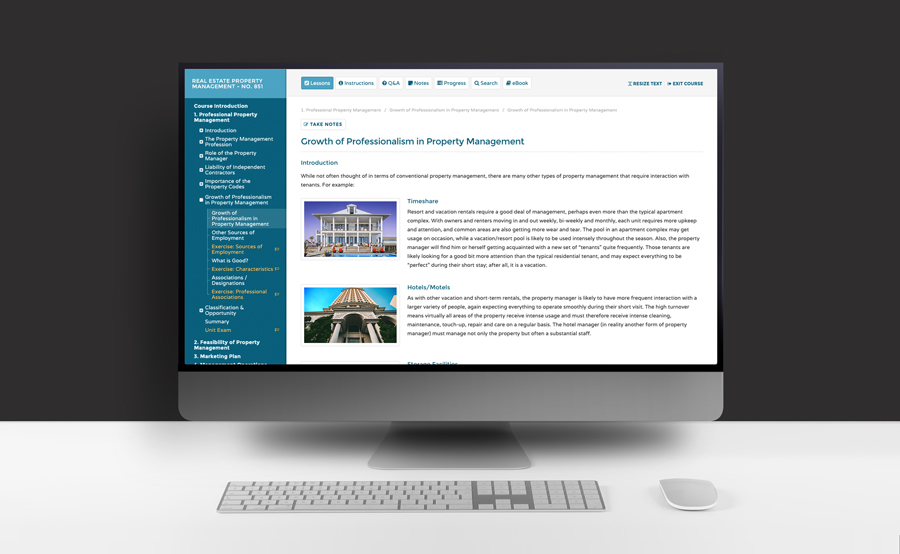
A real estate license is a crucial step in your career. The license will permit you to rent or sell homes, condos, or any other type of real estate. You will also be able to earn a decent salary.
There are a number of ways to get a license, but you should first research the requirements and make sure that you have the financial resources to complete your education. The federal student aid program is a good place to start. You can do this online and it is completely free. You can also apply for grants from both private and public agencies.
Grants for real-estate school
There is a large amount of money available to students who are enrolled in real estate schools. These grants may be used to help pay for books and tuition as well other expenses related to your degree. You should consider whether the grant will pay for your entire school or just part of it.
Real estate agent grants
There are some brokers that offer real estate agent training courses for free. These classes can prepare you for your new career and help you pass the state licensing exam. However, these offers may be scams. You should always be cautious when signing contracts for grants.

A variety of federal loans are available to those who want to pursue a four-year career in real estate. These loans have low interest rates and can be used to pay for all or parts of your education.
Private lenders may be able to provide loans. Private lenders might offer lower interest rates and a longer repayment term.
Many lenders will provide you with a credit loan to pay for school. These cards are not long-term and will only increase your debt.
Another option is to open a credit card that has a low interest rate. While this is a great way to lower your overall debt while in school, it can also be problematic if commissions start to accrue.
In addition to these options, you should also speak to the financial aid office at the college or university you are enrolled in to see what kinds of scholarships they offer. These scholarships are often available to students with good grades and who have financial need.

Scholarships are awarded based on merit and not need. They are therefore more competitive than grants.
To find out if your application is eligible, fill out the FAFSA. Once you have received your award you will be able to use it to help pay for real estate schooling.
You can apply for many grants to obtain a real estate license. They can be given by the federal government as well by nonprofit and private organisations.
FAQ
What should I look out for in a mortgage broker
A mortgage broker helps people who don't qualify for traditional mortgages. They search through lenders to find the right deal for their clients. This service is offered by some brokers at a charge. Other brokers offer no-cost services.
How long does it usually take to get your mortgage approved?
It all depends on your credit score, income level, and type of loan. It generally takes about 30 days to get your mortgage approved.
Is it possible sell a house quickly?
It may be possible to quickly sell your house if you are moving out of your current home in the next few months. There are some things to remember before you do this. You must first find a buyer to negotiate a contract. The second step is to prepare your house for selling. Third, your property must be advertised. Lastly, you must accept any offers you receive.
How do I get rid termites & other pests from my home?
Your home will eventually be destroyed by termites or other pests. They can cause damage to wooden structures such as furniture and decks. A professional pest control company should be hired to inspect your house regularly to prevent this.
Statistics
- Private mortgage insurance may be required for conventional loans when the borrower puts less than 20% down.4 FHA loans are mortgage loans issued by private lenders and backed by the federal government. (investopedia.com)
- When it came to buying a home in 2015, experts predicted that mortgage rates would surpass five percent, yet interest rates remained below four percent. (fortunebuilders.com)
- This seems to be a more popular trend as the U.S. Census Bureau reports the homeownership rate was around 65% last year. (fortunebuilders.com)
- 10 years ago, homeownership was nearly 70%. (fortunebuilders.com)
- It's possible to get approved for an FHA loan with a credit score as low as 580 and a down payment of 3.5% or a credit score as low as 500 and a 10% down payment.5 Specialty mortgage loans are loans that don't fit into the conventional or FHA loan categories. (investopedia.com)
External Links
How To
How to Manage a Property Rental
While renting your home can make you extra money, there are many things that you should think about before making the decision. These tips will help you manage your rental property and show you the things to consider before renting your home.
Here are some things you should know if you're thinking of renting your house.
-
What are the first things I should consider? You need to assess your finances before renting out your home. If you have outstanding debts like credit card bills or mortgage payment, you may find it difficult to pay someone else to stay in your home while that you're gone. You should also check your budget - if you don't have enough money to cover your monthly expenses (rent, utilities, insurance, etc. It may not be worth it.
-
What is the cost of renting my house? Many factors go into calculating the amount you could charge for letting your home. These factors include location, size, condition, features, season, and so forth. Prices vary depending on where you live so it's important that you don't expect the same rates everywhere. Rightmove shows that the median market price for renting one-bedroom flats in London is approximately PS1,400 per months. This means that you could earn about PS2,800 annually if you rent your entire home. While this isn't bad, if only you wanted to rent out a small portion of your house, you could make much more.
-
Is it worth it. You should always take risks when doing something new. But, if it increases your income, why not try it? You need to be clear about what you're signing before you do anything. Renting your home won't just mean spending more time away from your family; you'll also need to keep up with maintenance costs, pay for repairs and keep the place clean. You should make sure that you have thoroughly considered all aspects before you sign on!
-
Are there benefits? There are benefits to renting your home. There are many reasons to rent your home. You can use it to pay off debt, buy a holiday, save for a rainy-day, or simply to have a break. It is more relaxing than working every hour of the day. If you plan well, renting could become a full-time occupation.
-
How do I find tenants? Once you've decided that you want to rent out, you'll need to advertise your property properly. Start by listing online using websites like Zoopla and Rightmove. Once potential tenants contact you, you'll need to arrange an interview. This will help you assess their suitability and ensure they're financially stable enough to move into your home.
-
How do I ensure I am covered? If you fear that your home will be left empty, you need to ensure your home is protected against theft, damage, or fire. Your landlord will require you to insure your house. You can also do this directly with an insurance company. Your landlord will usually require you to add them as additional insured, which means they'll cover damages caused to your property when you're present. If you are not registered with UK insurers or if your landlord lives abroad, however, this does not apply. In these cases, you'll need an international insurer to register.
-
It's easy to feel that you don't have the time or money to look for tenants. This is especially true if you work from home. But it's crucial that you put your best foot forward when advertising your property. Post ads online and create a professional-looking site. Additionally, you'll need to fill out an application and provide references. Some people prefer to do everything themselves while others hire agents who will take care of all the details. In either case, be prepared to answer any questions that may arise during interviews.
-
What do I do when I find my tenant. If there is a lease, you will need to inform the tenant about any changes such as moving dates. If you don't have a lease, you can negotiate length of stay, deposit, or other details. Remember that even though you will be paid at the end of your tenancy, you still have to pay utilities.
-
How do I collect my rent? You will need to verify that your tenant has actually paid the rent when it comes time to collect it. If they haven't, remind them. Before you send them a final invoice, you can deduct any outstanding rent payments. If you're having difficulty getting hold of your tenant you can always call police. If there is a breach of contract they won't usually evict the tenant, but they can issue an arrest warrant.
-
What can I do to avoid problems? While renting out your home can be lucrative, it's important to keep yourself safe. Make sure you have carbon monoxide detectors installed and security cameras installed. You should also check that your neighbors' permissions allow you to leave your property unlocked at night and that you have adequate insurance. You should not allow strangers to enter your home, even if they claim they are moving in next door.